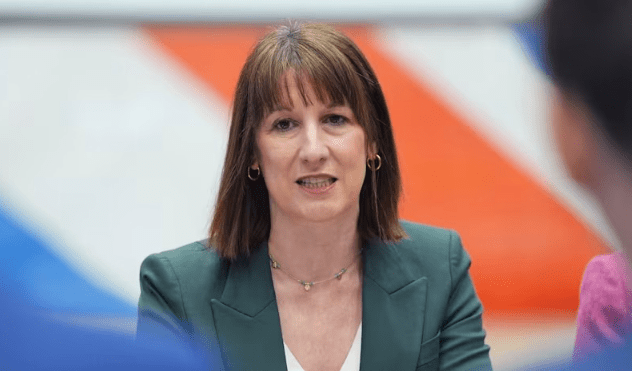Rachel Reeves is in the spotlight as Cash ISA savers are being urged to act quickly before potential changes to the annual allowance come into play.
In a recent Mansion House address, Labour’s Chancellor hinted at slashing the popular cash ISA limit from £20,000 to just £4,000. This move could catch many savers off guard.
But financial experts are already advising how to beat the possible shake-up.
Andrew Prosser, Head of Investments at InvestEngine, suggested a smart workaround.
“But for savers worried about a potential cut to the cash ISA allowance, one alternative could be investing in Money Market Funds through a stocks and shares ISA.
“These funds typically track overnight Bank of England rates and invest in low-risk things like government debt”. It means they offer relatively stable, if slightly lower, returns compared to other types of investments. But most importantly, any returns are tax-free
“The Government is unlikely to reduce the allowance for investment ISAs, and historically, investments in the stock market have outperformed cash savings over the long term”. It means Money Market Funds could enable individuals to continue putting money away in a tax-efficient way through an investment ISA, while providing a low-risk entry point for those new to investing.
“This can help build confidence and experience before exploring other types of investments that can help grow long-term wealth.”
Savers looking for a safe place to park their money might find this option attractive. Money Market Funds typically offer stable, though not spectacular, returns—but they remain tax-free when held in a stocks and shares ISA.
Nicholas Hyett, Investment Manager at Wealth Club, also weighed in.
“Money market funds are usually run by banks and invest in extremely short-term, low-risk loans.”
“These are the kinds of assets that underpin a conventional, easy-access savings account. However, because you have direct exposure to the underlying investments, rather than being intermediated by a bank,” a money market fund is eligible to be held in a stocks and shares ISA, and often offers a slightly higher rate of interest too.
“One thing we should add, is that while a cut to the cash ISA allowance may appear less than ideal for investors, there is a certain logic to it”.
“Savers who consistently max out their cash ISA allowance year after year clearly have surplus income and should really be thinking about investing”, rather than holding all their money in cash.
“However, the risk is that new investors make poor investment decisions – so this proposal relies on the accessibility of high quality financial advice for those who need it.”
His message is clear: cutting the allowance may push savers to explore better growth options but also raises concerns about financial guidance for beginners.
Colin Low, Managing Director at Kingsfleet, added his voice to the debate.
“If the longer term is an option and an investor can tolerate greater risk, then Stocks and Shares ISAs should still form part of an investor’s planning.
“The blending of higher risk (shares) and lower risk (bonds) will always be arranged by a quality IFA.”
In short, savers are being encouraged to look beyond just cash. Diversification and smart planning could be the key to staying ahead of Rachel Reeves’ proposed changes.
With the cash ISA cap potentially on the chopping block, now might be the time to rethink saving strategies before it’s too late.






